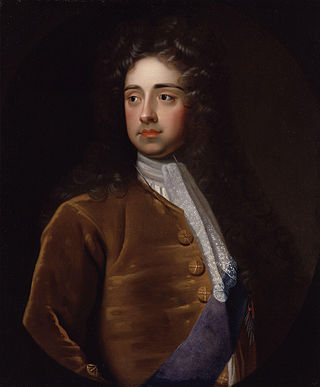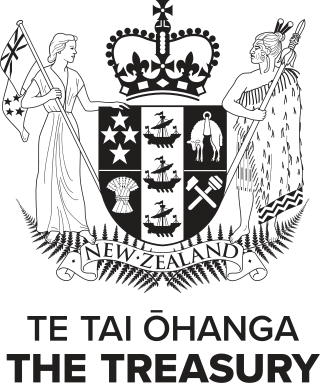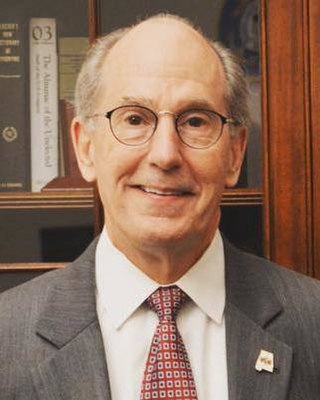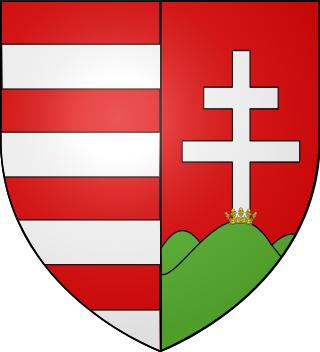Related Research Articles

The Department of the Treasury (USDT) is the national treasury and finance department of the federal government of the United States, where it serves as an executive department. The department oversees the Bureau of Engraving and Printing and the U.S. Mint. These two agencies are responsible for printing all paper currency and minting coins, while the treasury executes currency circulation in the domestic fiscal system. The USDT collects all federal taxes through the Internal Revenue Service; manages U.S. government debt instruments; licenses and supervises banks and thrift institutions; and advises the legislative and executive branches on matters of fiscal policy. The department is administered by the secretary of the treasury, who is a member of the Cabinet. The treasurer of the United States has limited statutory duties, but advises the Secretary on various matters such as coinage and currency production. Signatures of both officials appear on all Federal Reserve notes.

The chancellor of the Exchequer, often abbreviated to Chancellor, is a senior minister of the Crown within the Government of the United Kingdom, and head of His Majesty's Treasury. As one of the four Great Offices of State, the chancellor is a high-ranking member of the British Cabinet.

The First Lord of the Treasury is the head of the Lords Commissioners of the Treasury exercising the ancient office of Lord High Treasurer in the United Kingdom. Constitutional convention holds that the office of First Lord is held by the Prime Minister. The office is not the United Kingdom's finance minister; this role is instead held by the Chancellor of the Exchequer, who is the second lord of the Treasury.

A treasurer is a person responsible for the financial operations of a government, business, or other organization.

The Lord High Treasurer was an English government position and has been a British government position since the Acts of Union of 1707. A holder of the post would be the third-highest-ranked Great Officer of State in England, below the Lord High Steward and the Lord High Chancellor of Great Britain.
Government in medieval monarchies generally comprised the king's companions, later becoming the Royal Household, from which the officers of state arose, initially having household and government duties. Later some of these officers became two: one serving state and one serving household. They were superseded by new officers, or were absorbed by existing officers. Many of the officers became hereditary and thus removed from practical operation of either the state or the household.
In the United Kingdom there are at least six Lords Commissioners of His Majesty's Treasury, serving as a commission for the ancient office of Treasurer of the Exchequer. The board consists of the First Lord of the Treasury, the Second Lord of the Treasury, and four or more junior lords acting as whips in the House of Commons to whom this title is usually applied.
This article discusses the organizational and administrative structure of the Polish–Lithuanian Commonwealth.

Podskarbi in the Kingdom of Poland and later in the Polish–Lithuanian Commonwealth was minister responsible for the treasury. Since 1569 also a senatorial office. The title although meaning treasurer can be deconstructed as "under[King]-treasury" – treasury as an old-fashioned adjective. One other title was formed in the same way: "podkomorzy" – not meaning vice.
The Ministry of Finance is a ministry of the Government of Ontario responsible for managing the province's fiscal policy, developing the provincial budget, and financial sector regulation. The minister of finance – called the treasurer before 1993 – leads the ministry and is responsible to the Legislative Assembly of Ontario.
Unowned property includes tangible, physical things that are capable of being reduced to being property owned by a person but are not owned by anyone. Bona vacantia is a legal concept associated with the unowned property, which exists in various jurisdictions, with a consequently varying application, but with origins mostly in English law.

Sir Bertram Sydney Barnsdale Stevens, also referred to as B. S. B. Stevens, was an Australian politician who served as the 25th Premier of New South Wales, in office from 1932 to 1939 as leader of the United Australia Party (UAP).

The Old Treasury Building on Spring Street in Melbourne is a grand Renaissance Revival public building, built in 1858-62, terminating the vista up Collins Street. It was built to house the Treasury Department, various government officials, the Governor In Council, and basement vaults intended to house gold from the Victorian gold rush. It now houses a range of functions, including a museum of Melbourne history, known as Old Treasury Building Museum.

The New Zealand Treasury is the central public service department of New Zealand charged with advising the Government on economic policy, assisting with improving the performance of New Zealand's economy, and managing financial resources. The Minister responsible for the Treasury is the Minister of Finance of New Zealand; however, from 1996 to 2002, there existed a more specific position of Treasurer of New Zealand. The role was created for Winston Peters by the Fourth National Government under Jim Bolger after the 1996 election, and abolished by Helen Clark’s government in 2002.

Richard Jones, 1st Earl of Ranelagh, known as The Viscount Ranelagh between 1669 and 1677, was an Irish peer, politician both in the Parliaments of England and Ireland.

Rosa Gumataotao Rios is an American academic. She served as the 43rd Treasurer of the United States and is a visiting scholar at the Radcliffe Institute for Advanced Study at Harvard University.

Young Jacob Boozer III is an American politician who was the 39th State Treasurer of Alabama from 2011 to 2019 and is the 41st Treasurer, having been re-elected to a third term on November 8, 2022. He was elected to his first four-year term in 2010 and was unopposed and reelected to a second term in 2014.
John Ernuszt, Sr. was Ban of Slavonia from 1473 to 1476. He was born into a Jewish family in Vienna. He moved to Buda, the capital of the Kingdom of Hungary, and converted to Roman Catholicism. He became a purveyor to the royal court, which enabled him to meet Matthias Corvinus, King of Hungary. His career in the administration of royal revenues began in 1461, with responsibility for the collection of the thirtieth in Pozsony County. He purchased copper mines in Upper Hungary in 1466.

The royal treasurer, or simply treasurer, also royal purse-bearer, was an official in the Hungarian royal court, existed around from the 1320s to the 16th century. The position evolved from the royal dignity of Master of the treasury, which gradually adopted more and more judiciary functions over the centuries, thus the newly established royal treasurer put in charge of collecting and administering royal revenues in practice.

In the United Kingdom, the Great Officers of State are traditional ministers of the Crown who either inherit their positions or are appointed to exercise certain largely ceremonial functions or to operate as members of the government. Separate Great Officers exist for England and Wales, Scotland, and formerly for Ireland, though some exist for Great Britain and the United Kingdom as a whole.
References
- ↑ Suchodolski, Bogdan (1964). Wielka encyklopedia powszechna PWN. Państwowe Wydawn. Naukowe. p. 369. Retrieved 4 November 2011.
- ↑ Instytut Badań Literackich (Polska Akademia Nauk) (1973). Archiwum literackie. Zakład Narodowy im. Ossolińskich. Retrieved 4 November 2011.
